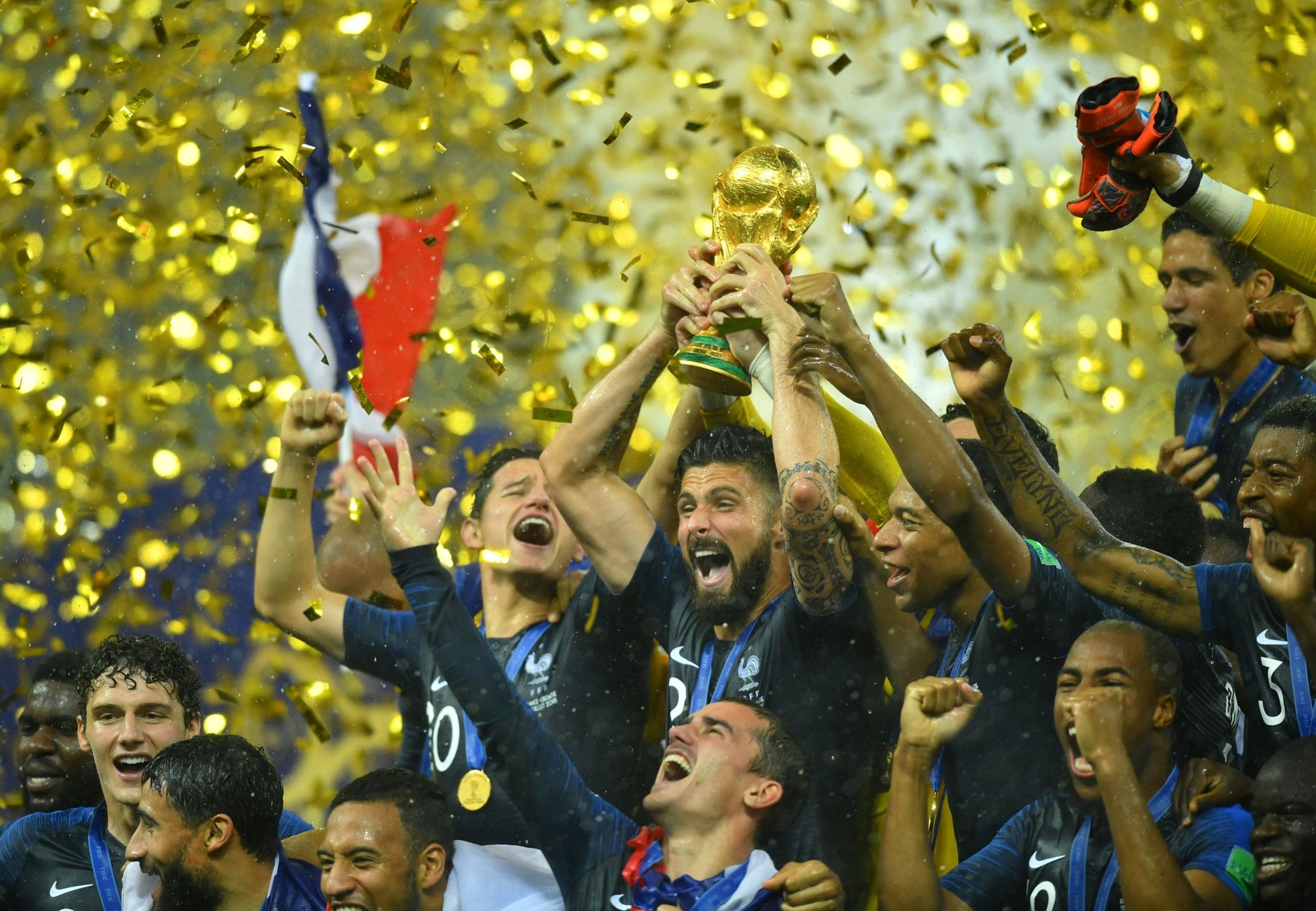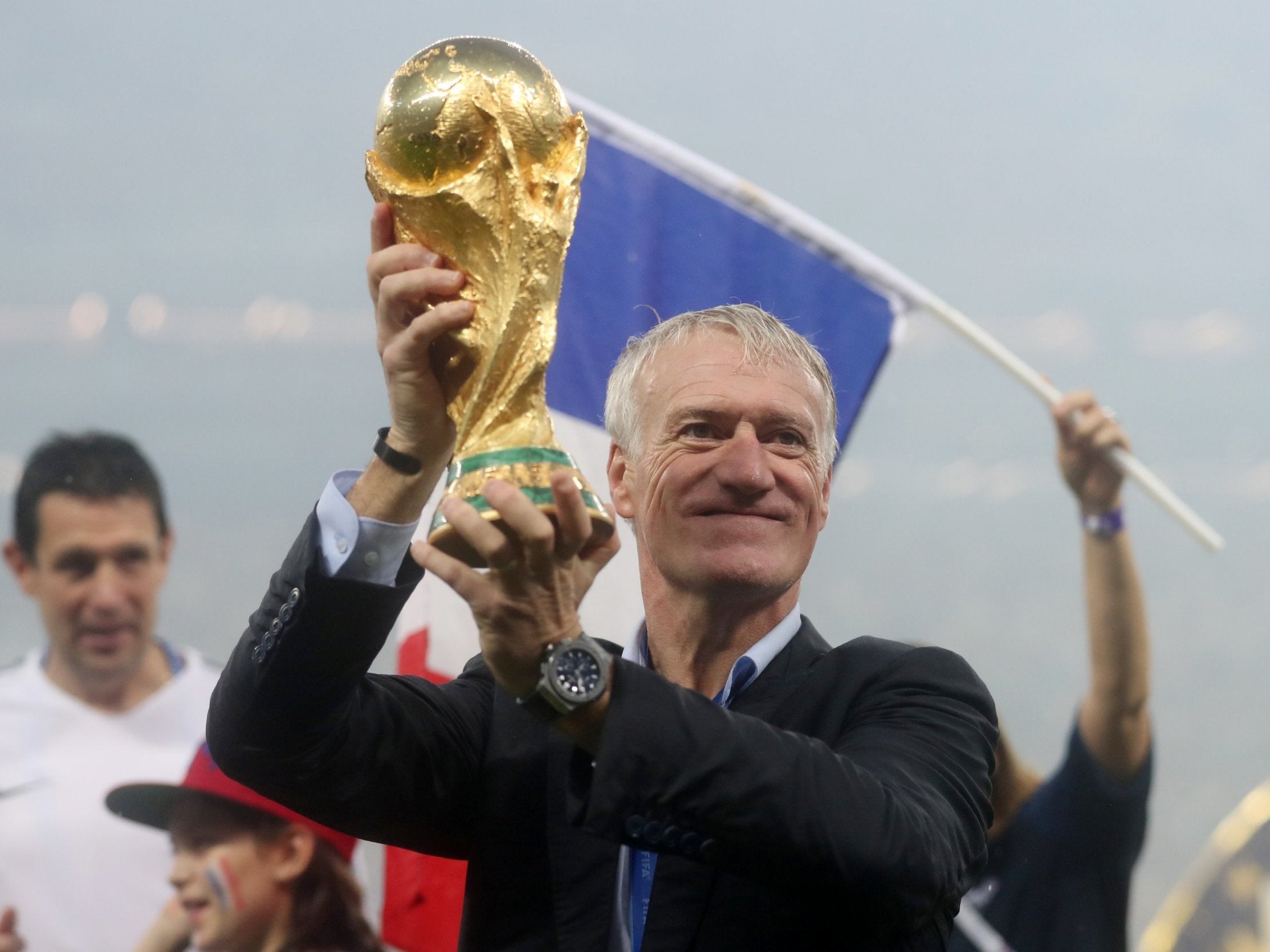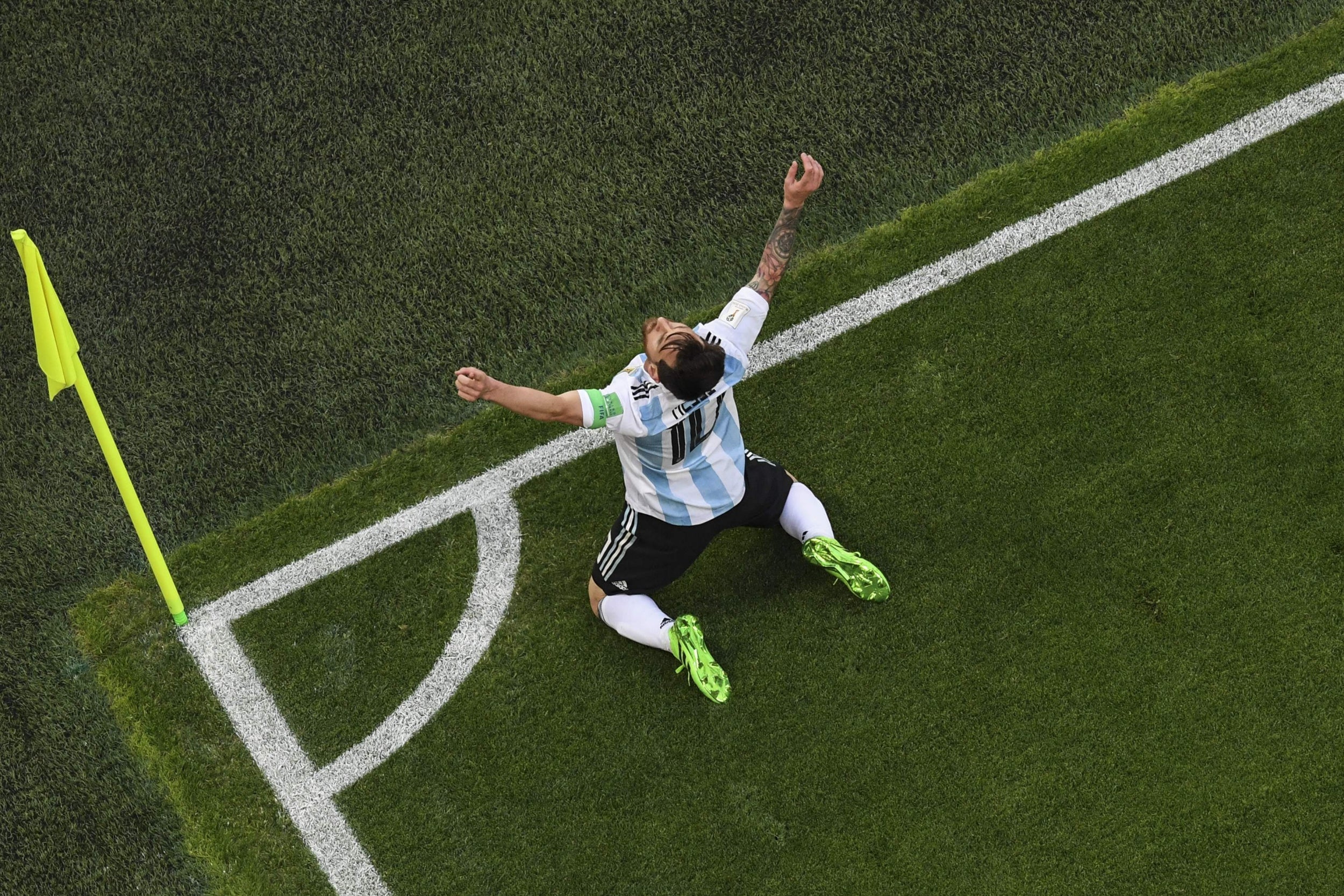World Cup 2018: Russia was hugely enjoyable but lacked the real quality to be a truly great tournament
This tournament shook the senses and so often stirred the soul but stopped short of being one of the greats

Your support helps us to tell the story
From reproductive rights to climate change to Big Tech, The Independent is on the ground when the story is developing. Whether it's investigating the financials of Elon Musk's pro-Trump PAC or producing our latest documentary, 'The A Word', which shines a light on the American women fighting for reproductive rights, we know how important it is to parse out the facts from the messaging.
At such a critical moment in US history, we need reporters on the ground. Your donation allows us to keep sending journalists to speak to both sides of the story.
The Independent is trusted by Americans across the entire political spectrum. And unlike many other quality news outlets, we choose not to lock Americans out of our reporting and analysis with paywalls. We believe quality journalism should be available to everyone, paid for by those who can afford it.
Your support makes all the difference.In the final minutes before the final game of the 2018 World Cup, Paul Pogba had a dressing-room speech that he hoped would bring France Football - and, by extension, the tournament - to a peak.
“We are 90 minutes away from realising our dream,” the midfielder said. “To be world champions, to make history, to make France shake - in a way that the French children and the children of those children will celebrate what we have done.”
France did that, and the final so fittingly shook with all of the entertainment that this whole World Cup had done and that so brings the child out in so many football supporters… but there was one thing none of this did do. Russia 2018 didn’t shake up the established order.
After all the reverberations, and all of the moments and stories of this World Cup that had so many widely opening their eyes in joyous appreciation of the sport, it ended with the same predictable story. It ended by continuing the slightly troubling trend that is likely to be the future of the international game.
For the third World Cup in a row, the that unique trophy was lifted by squads from wealthy western European countries who had mass-industrialised talent production, and in a way that is really unique to them.
That is why it was somewhat less uplifting that France themselves played the type of bog-standard “pragmatic” and restrictive football that so many smaller countries must resort because they don’t have that talent.
It’s all the more striking when so many smaller countries then didn’t resort to such tactics, in a tournament that was mostly so raucously stirring, and perhaps the most “fun” World Cup - whatever about best - since 1986.
That is at least down to a twist in this trend of massive countries mass industrialising talent, and suggests there is the potential for respite, that they won’t trample over everyone indefinitely and insufferably. Croatia’s run alone is illustration of that, but this - conversely - might be both why this has been a greatly enjoyable World Cup but not a truly great World Cup.
The reality is that Spain and Germany probably had squads as good as France, but didn’t show it because of problems that are universal to every team, even the most successful. The previously imperious Spanish never recovered from the deep disruption of so shockingly sacking Julen Lopetegui on the eve of the, while the Germans by contrast never escaped the complacency that gradually gripped and slowed the side.

Some have described their struggles as evidence for the demise of possession football, but this has something that has been heard, and displays a complete misunderstanding of the issue. Spain and Germany did not fail because of their style, but because a series other problems prevented them properly applying that style. Croatia did apply it thanks to Ivan Rakitic and player-of-the-tournament Luka Modric - and overachieved more than anyone.
We're in any case long past the point where the tactics of international tournaments said much about the general state of the game, and it's impossible not to think that if Didier Deschamps tried these tactics in the Champions League one of the other more sophisticatedly set-up super squads would have dismantled them there. It is football from 2004, and 1998, when Deschamps had his previous best successes as a manager and player.

That however is also the slight frustration of their run, and this otherwise exhilarating World Cup. As exciting as it is in the moment when the heavyweights go out, it leaves a vacuum in the rest of the tournament. It in Russia meant that France didn't play any squads equal to theirs, with Belgium the only team close.
That similarly meant this World Cup didn't build up to battles with heavyweights in the way that is really craved, but also reflected how it didn't in the end have many sides who would by historic standards be considered worthy champions. Compare that for example to France 1998, that had the hosts, Brazil, Netherlands, Argentina and what was probably a superior Croatia.
That truly elite level that really elevates World Cups eluded this one.

And yet that was probably precisely what simultaneously made it the most entertaining and engaging World Cup since then. There was a spirit of adventure and seizing opportunity from so many teams that didn't cease. That was unlike the actually slightly higher-scoring 2014 World Cup, that did seize up and tighten from the last 16. This World Cup never let up, and some of its last games were among its best, especially Brazil 1-2 Belgium, Croatia 2-1 England and the final itself.
That is in itself pointed. If World Cups can no longer tell us about the general state of the whole game, they still say the most about international tournaments - while providing lessons on how to navigate them.
It proved that a stand-out star can only take you so far. They still need a proper team or structure around them or, in the case of the infuriatingly self-indulgent Neymar, for that star to buy in and commit to what they're doing. The fallen Brazilian star was one of many bright stars of the Champions League to go out of this World Cup early or unfulfilled along with: Leo Messi, Cristiano Ronaldo, Mo Salah and Robert Lewandowski.

In the place of shambles like Argentina rose properly focused teams like Croatia, Uruguay, Mexico and - of course - England. Gareth Southgate proved that something about international football hasn't changed. As has been the case for almost two decades, most teams still lack anything like proper cohesion, and the gaps can still allow a more mechanical combination of defensive organisation and set-pieces to go far.
That might be more pronounced in this slightly unsteady new era of VAR, but it is still a positive that more progressive sides will beat them with the same level of organisation.
This was then the World Cup of the collective, above the star, but also then the World Cup that had the greatest collection of elements that make a tournament it had years.
It had so many storylines from Lopetegui's sacking to Croatia's surge, so many moments of history like Germany's elimination to Belgium brilliantly breaking against Brazil, so many epic games and maybe more great goals than any World Cup ever.
It just missed truly great teams performing at truly great levels - but that was all.
It had everything else, to the point did shake the senses, and so often stirred the soul.
Join our commenting forum
Join thought-provoking conversations, follow other Independent readers and see their replies
Comments